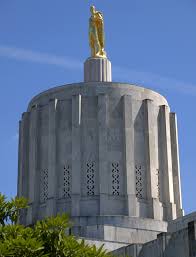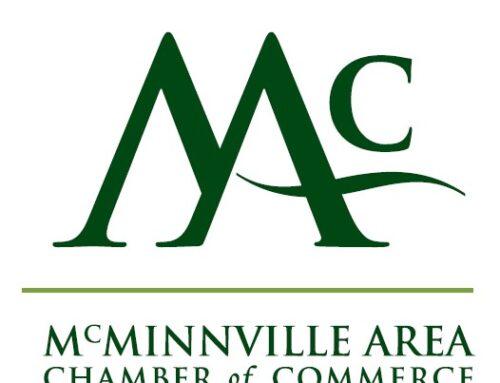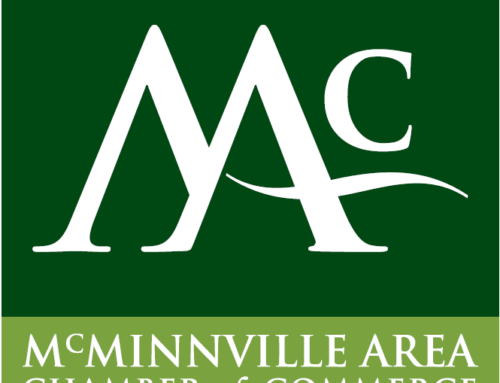
Corporate Activities Tax (CAT) Goes into Effect on January 1, 2020
House Bill 3427 was arguably the most significant bill passed during the 2019 Oregon Legislative Session. Called the Student Success Act by its proponents, the bill aims to bring in an additional $1 billion per year in revenue to fund Oregon’s K-12 public school system. To do this, the bill established a new “Fund for Student Success,” separate from the state’s general fund, and enacted a new Corporate Activity Tax (CAT) to be imposed on all types of business entities “for the privilege of doing business in this state.”
The CAT is applicable to “Oregon taxable commercial activity” above $1 million and is in addition to the state’s current corporate income tax. Only taxpayers with more than $1 million of taxable commercial activity in 2020 will have a payment obligation for the year, but all businesses in Oregon with gross receipts over $750,000 will have to register for the tax after January 1. Registration is due within 30 days of meeting the $750,000 threshold, and while there is no registration fee the state may assess a penalty of $100 per month for failing to register, up to $1,000 per calendar year.
The amount a business owes can be calculated as $250 plus 0.57% of Oregon taxable commercial activity in excess of $1 million. Certain items, such as revenues derived from the sale of groceries, are excluded from the definition of commercial activity and will not be subject to the CAT. The law also allows for a 35% subtraction of either cost inputs, more commonly defined as cost of goods sold, or labor costs. For more information on which business expenses may be included in the subtraction calculation, click here.
Throughout the Fall, Chamber staff have been monitoring the process of administrative rulemaking by officials from the Oregon Department of Revenue. The Department’s Draft Administrative Rules seek to officially define terms such as “Oregon taxable commercial activity,” and to clarify filing requirements and calculation guidelines for “agents” and “Unitary Groups.” To date, the Department has posted 12 Draft Rules for the Corporate Activity Tax, with additional rules expected by March 1 and Permanent Rules expected to be enacted by July 1. Please click here for analysis of the first eight draft rules, courtesy of our colleagues at Oregon Business & Industry.
While House Bill 3427 was working its way through the Legislature, members of the business community regularly appeared before policymakers to testify that the $1 million threshold may be too low, and could hurt the tens of thousands of Oregon small businesses that operate on slim profit margins. Because the tax applies even if a business records a net loss for the year, and because it applies to nearly every business-to-business transaction that businesses conduct, it may have a disproportionately negative effect on the ability of Oregon businesses to engage in intrastate commerce, expand their operations out of state, and create living-wage jobs for Oregonians.
The business community also consistently raised concerns that consequences of the CAT’s pyramiding effect, which will compound the tax burden at each step of a company’s supply chain, may discourage entrepreneurship and disrupt economic development efforts by private and public entities alike. This may lead to contraction or even closure of well-managed but low margin Oregon businesses.
Chamber Members are encouraged to contact their financial advisors or accountants as soon as possible to discuss their exposure to the CAT and to plan for the additional financial and administrative burdens that will be necessary to comply with it. The Chamber will continue to work with and support our fellow business advocates to mitigate these burdens for our members. Questions and individual business fact situations can be directed to the Department of Revenue at cat.help.dor.@oregon.gov or by calling 503-945-8005. If Members have concerns, please contact our Government Affairs Director.
Looking Forward to 2020

In the new year, the Chamber looks forward to continuing to educate and activate our members in the development of public policy and seeks to elevate and enhance the voices of our members at all levels of government. Members interested in Government Affairs are encouraged to join or attend the monthly meetings of our Government Affairs Council (GAC), where members build consensus on timely issues and discuss policy and regulation with an eye toward maintaining a favorable business climate.
On Thursday, January 9, Chamber Members are welcome to attend a meeting of the GAC where an advocate from Health Care for All Oregon will be presenting “The Business Case for Universal Health Care,” and members will have the opportunity to ask questions or raise concerns about health care policy. This meeting will be held at McMinnville Civic Hall at 200 NE Second Street from Noon to 1:00 PM on 1/9/2020.
Throughout 2020, Chamber Members can find our staff at various public meetings and official proceedings at the City and County levels. We encourage our members and the public to attend these meetings and contribute to the ongoing community conversations about important local matters.
After the 2020 Legislative Session begins on February 3, the Chamber will be attending daily Committee Hearings and Floor Sessions of the Oregon Legislature in order to ensure our members’ voices are heard on matters that may affect them and the local economy. From January 13 – 15, we will be at the State Capitol for another round of Legislative Days, when Committees will hold informational hearings on topics that may lead to legislation and hear reports from the heads of State Agencies. We look forward to updating our members on the latest from Salem after the 15th.




